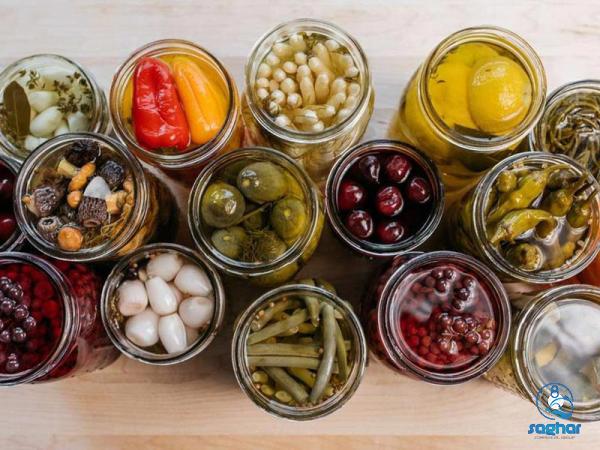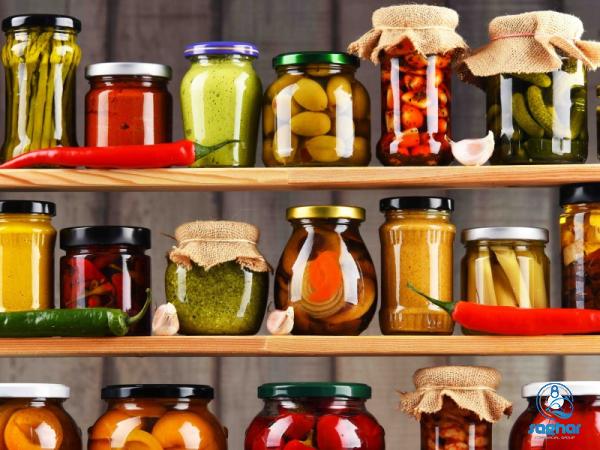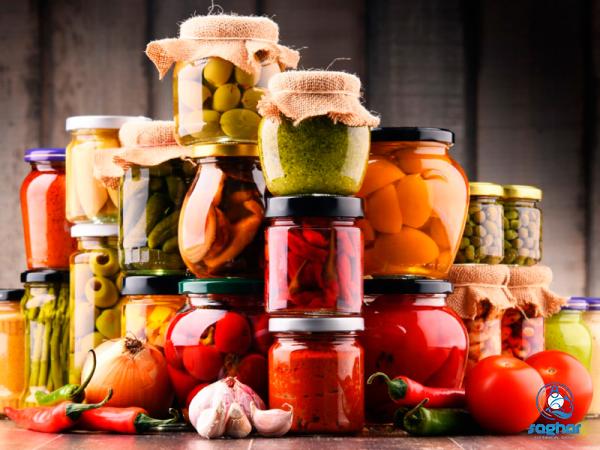The Perfect Non-Perishable Solution for Modern Lifestyles Introduction: Non-perishable food items have become increasingly popular in recent years due to their convenience, long shelf life, and ability to provide essential nutrients in times of need. Among these, canned food stands out as a reliable choice for consumers worldwide. Canned foods are an excellent option for emergencies, camping trips, and even everyday meals. This article explores the advantages of canned foods as non-perishable items, shedding light on their nutritional value, convenience, and versatility. 1. Extended Shelf Life: One of the primary benefits of canned food is its extended shelf life. The canning process involves sealing food in airtight containers, protecting it from contamination and microbial growth. This preservation method allows canned food to remain edible for an extended period, often ranging from one to five years or even longer, depending on the product. This extended shelf life makes canned food desirable for emergency preparedness, as it can be stored for emergencies or unexpected events without compromising quality or taste.

Canned foods
 2. Nutritional Value: Contrary to popular belief, canned food does not necessarily lose its nutritional value during the canning process. In fact, the canning process is designed to retain the maximum nutritional content of the food. The high-temperature cooking used in canning eliminates harmful bacteria, enzymes, and microorganisms while preserving the vitamins, minerals, and nutrients present in the food. Canned fruits and vegetables are especially noteworthy as they retain their essential vitamins and antioxidants, making them a reliable source of nutrition, even when fresh produce is unavailable. 3. Convenience: Canned food offers unparalleled convenience for individuals leading busy lifestyles. The ease of use and minimal preparation required make it an ideal choice for quick meals or snacks. Canned foods do not require refrigeration, allowing for easy storage and transportation. They are also pre-cooked, requiring minimal cooking time or, in some cases, no cooking at all. Canned soups, stews, and beans, for instance, can be heated and enjoyed with minimal effort, providing a hassle-free solution for those with limited time or cooking resources. 4. Cost-Effective: Canned food offers excellent value for money. In comparison to fresh produce, canned food is often more affordable, especially when considering seasonal or out-of-season fruits and vegetables. Additionally, the extended shelf life of canned food reduces the risk of spoilage, eliminating waste and potential monetary losses. For budget-conscious individuals, canned food presents an attractive option without compromising on nutritional content or taste. 5. Versatility: Canned food provides a wide range of options to suit various culinary preferences, making it a versatile addition to any meal. From fruits, vegetables, and legumes to meats, seafood, and meal kits, the array of canned products available ensures there is something to suit every taste. The ability to mix and match canned ingredients allows for endless possibilities in creating wholesome and delicious meals. Whether it’s adding canned tomatoes to a pasta sauce, incorporating canned tuna into a salad, or using canned beans in chili, the versatility of canned food makes it a valuable tool in the kitchen. 6. Sustainability: Canning food is a sustainable process that helps reduce food wastage and supports environmental conservation efforts. By preserving food in cans, there is less reliance on refrigeration or frozen storage, reducing energy consumption. Additionally, the ability to store canned food for extended periods reduces the need to discard perishable items and contributes to overall food waste reduction. Canned food also requires less packaging compared to other food preservation methods, further minimizing its environmental impact. Conclusion: Canned food stands as a reliable and practical non-perishable option for individuals and families alike. Its extended shelf life, nutritional value, convenience, versatility, cost-effectiveness, and sustainability make it a smart choice for emergency preparedness, everyday meals, and various culinary needs. As consumers continue to prioritize convenience and long-lasting food options, the popularity and demand for canned food are likely to continue growing.1. The Growing Market for Canned Food: The market for canned food has expanded significantly in recent years, driven by factors such as changing consumer lifestyles, increasing demand for convenience, and the need for food security. According to a report by Grand View Research, the global canned food market is projected to reach $118.2 billion by 2027, with a compound annual growth rate of 4.8% from 2020 to 2027. The widespread availability of canned food in supermarkets, grocery stores, and e-commerce platforms has fueled consumer adoption and contributed to the growth of the industry.
2. Nutritional Value: Contrary to popular belief, canned food does not necessarily lose its nutritional value during the canning process. In fact, the canning process is designed to retain the maximum nutritional content of the food. The high-temperature cooking used in canning eliminates harmful bacteria, enzymes, and microorganisms while preserving the vitamins, minerals, and nutrients present in the food. Canned fruits and vegetables are especially noteworthy as they retain their essential vitamins and antioxidants, making them a reliable source of nutrition, even when fresh produce is unavailable. 3. Convenience: Canned food offers unparalleled convenience for individuals leading busy lifestyles. The ease of use and minimal preparation required make it an ideal choice for quick meals or snacks. Canned foods do not require refrigeration, allowing for easy storage and transportation. They are also pre-cooked, requiring minimal cooking time or, in some cases, no cooking at all. Canned soups, stews, and beans, for instance, can be heated and enjoyed with minimal effort, providing a hassle-free solution for those with limited time or cooking resources. 4. Cost-Effective: Canned food offers excellent value for money. In comparison to fresh produce, canned food is often more affordable, especially when considering seasonal or out-of-season fruits and vegetables. Additionally, the extended shelf life of canned food reduces the risk of spoilage, eliminating waste and potential monetary losses. For budget-conscious individuals, canned food presents an attractive option without compromising on nutritional content or taste. 5. Versatility: Canned food provides a wide range of options to suit various culinary preferences, making it a versatile addition to any meal. From fruits, vegetables, and legumes to meats, seafood, and meal kits, the array of canned products available ensures there is something to suit every taste. The ability to mix and match canned ingredients allows for endless possibilities in creating wholesome and delicious meals. Whether it’s adding canned tomatoes to a pasta sauce, incorporating canned tuna into a salad, or using canned beans in chili, the versatility of canned food makes it a valuable tool in the kitchen. 6. Sustainability: Canning food is a sustainable process that helps reduce food wastage and supports environmental conservation efforts. By preserving food in cans, there is less reliance on refrigeration or frozen storage, reducing energy consumption. Additionally, the ability to store canned food for extended periods reduces the need to discard perishable items and contributes to overall food waste reduction. Canned food also requires less packaging compared to other food preservation methods, further minimizing its environmental impact. Conclusion: Canned food stands as a reliable and practical non-perishable option for individuals and families alike. Its extended shelf life, nutritional value, convenience, versatility, cost-effectiveness, and sustainability make it a smart choice for emergency preparedness, everyday meals, and various culinary needs. As consumers continue to prioritize convenience and long-lasting food options, the popularity and demand for canned food are likely to continue growing.1. The Growing Market for Canned Food: The market for canned food has expanded significantly in recent years, driven by factors such as changing consumer lifestyles, increasing demand for convenience, and the need for food security. According to a report by Grand View Research, the global canned food market is projected to reach $118.2 billion by 2027, with a compound annual growth rate of 4.8% from 2020 to 2027. The widespread availability of canned food in supermarkets, grocery stores, and e-commerce platforms has fueled consumer adoption and contributed to the growth of the industry.
Specifications of canned food
 2. Emergencies and Natural Disasters: Canned food is often touted as an essential item for emergency preparedness. During natural disasters or unforeseen circumstances that disrupt regular food supply chains, having a stock of non-perishable canned food can provide a lifeline. Canned food’s long shelf life and nutritional value make it a reliable source of sustenance in times of crisis. Government organizations, disaster relief agencies, and NGOs often recommend including canned food in emergency preparedness kits, ensuring individuals and communities have access to nourishment during challenging times. 3. Efforts to Address Food Insecurity: Food insecurity remains a pressing issue in many parts of the world. Canned food plays a vital role in addressing this problem by providing a stable and cost-effective source of nutrition. Non-perishable food items, including canned foods, are frequently donated to food banks, shelters, and organizations that support vulnerable populations. With their extended shelf life and ease of distribution, canned foods can help ensure that individuals and families in need have access to nutritious meals. 4. Versatility in Hospitality Industry: The hospitality industry, including hotels, restaurants, and catering services, has long recognized the benefits of incorporating canned food into their operations. Canned ingredients, such as tomatoes, sauces, and pre-cooked proteins, offer convenience and consistency in menu planning. They also provide a reliable solution for maintaining food quality and reducing wastage. Canned food can be used in a variety of dishes, from soups and stews to pasta sauces and dessert fillings, ensuring versatility in culinary offerings and efficient kitchen operations. 5. Convenience for Outdoor Activities: Canned food is a popular choice for outdoor enthusiasts engaging in activities such as camping, hiking, and boating. Its lightweight and compact nature make it easy to carry in backpacks or store in limited space. The minimal cooking requirements, if any, make it a convenient choice for preparing meals while away from traditional kitchen facilities. Canned food’s long shelf life eliminates the need for refrigeration, allowing individuals to enjoy nutritious meals even in remote or off-grid locations. 6. Export and Global Trade: Canned food plays a significant role in global trade, as countries export and import various canned products. The canning industry’s standardization of packaging and preservation techniques ensures that canned food products can be safely transported over long distances without spoilage. The global demand for canned food has led to the establishment of international trade networks and the growth of international canning companies. These companies often leverage economies of scale to produce and distribute a wide range of canned food products worldwide. 7. Innovations and Health-focused Options: In response to evolving consumer preferences for healthier food options, the canned food industry has undergone significant innovations. Manufacturers now offer a variety of canned food products tailored to specific dietary needs and preferences. These include low-sodium and no-sugar-added options, organic canned products, and those free from preservatives or other additives. The availability of these health-focused canned options has expanded the consumer base and catered to a growing market segment seeking convenient and nutritious choices. 8. Sustainable Packaging Initiatives: The canned food industry has also made strides in sustainable packaging solutions. Many manufacturers have adopted eco-friendly practices, such as using BPA-free cans and increasing the use of recyclable materials for packaging. These initiatives aim to reduce the environmental impact of canned food production and disposal. Furthermore, canned food’s long shelf life helps minimize food waste, a significant contributor to environmental degradation. Consumers are increasingly gravitating towards brands that prioritize sustainability, further driving demand for environmentally conscious canned food products. 9. Private Label Market: Private label brands have gained prominence in the canned food industry. Retailers and grocery chains are increasingly developing their own brands of canned food, leveraging their market reach and consumer trust. Private label products often offer competitive pricing, allowing retailers to cater to price-sensitive consumers while maintaining quality standards. This trend has led to increased market competition among canned food manufacturers, encouraging innovation, and driving the overall growth of the industry. 10. Online Grocery Platforms and Direct-to-Consumer Sales: The rise of e-commerce and online grocery platforms has brought convenience to consumers, including those purchasing canned food. Many canned food manufacturers now sell their products directly to consumers through their websites or online marketplace platforms. This direct-to-consumer approach allows brands to reach a broader audience, bypassing traditional distribution channels. Online platforms also provide consumers with a wider selection of canned food products, including niche or specialty items that may not be readily available in local stores. 11. Health and Safety Standards: The canned food industry follows strict health and safety standards to ensure the quality and safety of their products. Manufacturers are required to adhere to regulations that govern food processing, labeling, and packaging. These standards include regular inspections, testing, and certification processes to maintain food safety. Consumers can be confident in the safety and integrity of canned food products, thanks to comprehensive quality control measures implemented by manufacturers.
2. Emergencies and Natural Disasters: Canned food is often touted as an essential item for emergency preparedness. During natural disasters or unforeseen circumstances that disrupt regular food supply chains, having a stock of non-perishable canned food can provide a lifeline. Canned food’s long shelf life and nutritional value make it a reliable source of sustenance in times of crisis. Government organizations, disaster relief agencies, and NGOs often recommend including canned food in emergency preparedness kits, ensuring individuals and communities have access to nourishment during challenging times. 3. Efforts to Address Food Insecurity: Food insecurity remains a pressing issue in many parts of the world. Canned food plays a vital role in addressing this problem by providing a stable and cost-effective source of nutrition. Non-perishable food items, including canned foods, are frequently donated to food banks, shelters, and organizations that support vulnerable populations. With their extended shelf life and ease of distribution, canned foods can help ensure that individuals and families in need have access to nutritious meals. 4. Versatility in Hospitality Industry: The hospitality industry, including hotels, restaurants, and catering services, has long recognized the benefits of incorporating canned food into their operations. Canned ingredients, such as tomatoes, sauces, and pre-cooked proteins, offer convenience and consistency in menu planning. They also provide a reliable solution for maintaining food quality and reducing wastage. Canned food can be used in a variety of dishes, from soups and stews to pasta sauces and dessert fillings, ensuring versatility in culinary offerings and efficient kitchen operations. 5. Convenience for Outdoor Activities: Canned food is a popular choice for outdoor enthusiasts engaging in activities such as camping, hiking, and boating. Its lightweight and compact nature make it easy to carry in backpacks or store in limited space. The minimal cooking requirements, if any, make it a convenient choice for preparing meals while away from traditional kitchen facilities. Canned food’s long shelf life eliminates the need for refrigeration, allowing individuals to enjoy nutritious meals even in remote or off-grid locations. 6. Export and Global Trade: Canned food plays a significant role in global trade, as countries export and import various canned products. The canning industry’s standardization of packaging and preservation techniques ensures that canned food products can be safely transported over long distances without spoilage. The global demand for canned food has led to the establishment of international trade networks and the growth of international canning companies. These companies often leverage economies of scale to produce and distribute a wide range of canned food products worldwide. 7. Innovations and Health-focused Options: In response to evolving consumer preferences for healthier food options, the canned food industry has undergone significant innovations. Manufacturers now offer a variety of canned food products tailored to specific dietary needs and preferences. These include low-sodium and no-sugar-added options, organic canned products, and those free from preservatives or other additives. The availability of these health-focused canned options has expanded the consumer base and catered to a growing market segment seeking convenient and nutritious choices. 8. Sustainable Packaging Initiatives: The canned food industry has also made strides in sustainable packaging solutions. Many manufacturers have adopted eco-friendly practices, such as using BPA-free cans and increasing the use of recyclable materials for packaging. These initiatives aim to reduce the environmental impact of canned food production and disposal. Furthermore, canned food’s long shelf life helps minimize food waste, a significant contributor to environmental degradation. Consumers are increasingly gravitating towards brands that prioritize sustainability, further driving demand for environmentally conscious canned food products. 9. Private Label Market: Private label brands have gained prominence in the canned food industry. Retailers and grocery chains are increasingly developing their own brands of canned food, leveraging their market reach and consumer trust. Private label products often offer competitive pricing, allowing retailers to cater to price-sensitive consumers while maintaining quality standards. This trend has led to increased market competition among canned food manufacturers, encouraging innovation, and driving the overall growth of the industry. 10. Online Grocery Platforms and Direct-to-Consumer Sales: The rise of e-commerce and online grocery platforms has brought convenience to consumers, including those purchasing canned food. Many canned food manufacturers now sell their products directly to consumers through their websites or online marketplace platforms. This direct-to-consumer approach allows brands to reach a broader audience, bypassing traditional distribution channels. Online platforms also provide consumers with a wider selection of canned food products, including niche or specialty items that may not be readily available in local stores. 11. Health and Safety Standards: The canned food industry follows strict health and safety standards to ensure the quality and safety of their products. Manufacturers are required to adhere to regulations that govern food processing, labeling, and packaging. These standards include regular inspections, testing, and certification processes to maintain food safety. Consumers can be confident in the safety and integrity of canned food products, thanks to comprehensive quality control measures implemented by manufacturers.
buy canned food
 12. Consumer Awareness and Education: Consumer education plays a crucial role in promoting the benefits of canned food as a non-perishable option. Educating the public about the nutritional value, convenience, and versatility of canned food can increase its acceptance and utilization. Government agencies, non-profit organizations, and industry associations can collaborate to raise awareness through campaigns, workshops, and online resources. By focusing on the benefits and dispelling misconceptions surrounding canned food, consumers can make informed choices about its inclusion in their diets. Conclusion: Canned food’s status as a non-perishable and versatile food option has made it an indispensable resource for individuals, families, and businesses around the world. Its extended shelf life, nutritional value, convenience, and cost-effectiveness have contributed to its rising popularity. With ongoing innovations, sustainability efforts, and increased consumer awareness, the canned food industry is poised for continued growth and adaptation to evolving consumer needs. As modern lifestyles demand convenience and reliability, canned food stands as a steadfast solution, meeting the demands of an ever-changing world.
12. Consumer Awareness and Education: Consumer education plays a crucial role in promoting the benefits of canned food as a non-perishable option. Educating the public about the nutritional value, convenience, and versatility of canned food can increase its acceptance and utilization. Government agencies, non-profit organizations, and industry associations can collaborate to raise awareness through campaigns, workshops, and online resources. By focusing on the benefits and dispelling misconceptions surrounding canned food, consumers can make informed choices about its inclusion in their diets. Conclusion: Canned food’s status as a non-perishable and versatile food option has made it an indispensable resource for individuals, families, and businesses around the world. Its extended shelf life, nutritional value, convenience, and cost-effectiveness have contributed to its rising popularity. With ongoing innovations, sustainability efforts, and increased consumer awareness, the canned food industry is poised for continued growth and adaptation to evolving consumer needs. As modern lifestyles demand convenience and reliability, canned food stands as a steadfast solution, meeting the demands of an ever-changing world.

Your comment submitted.